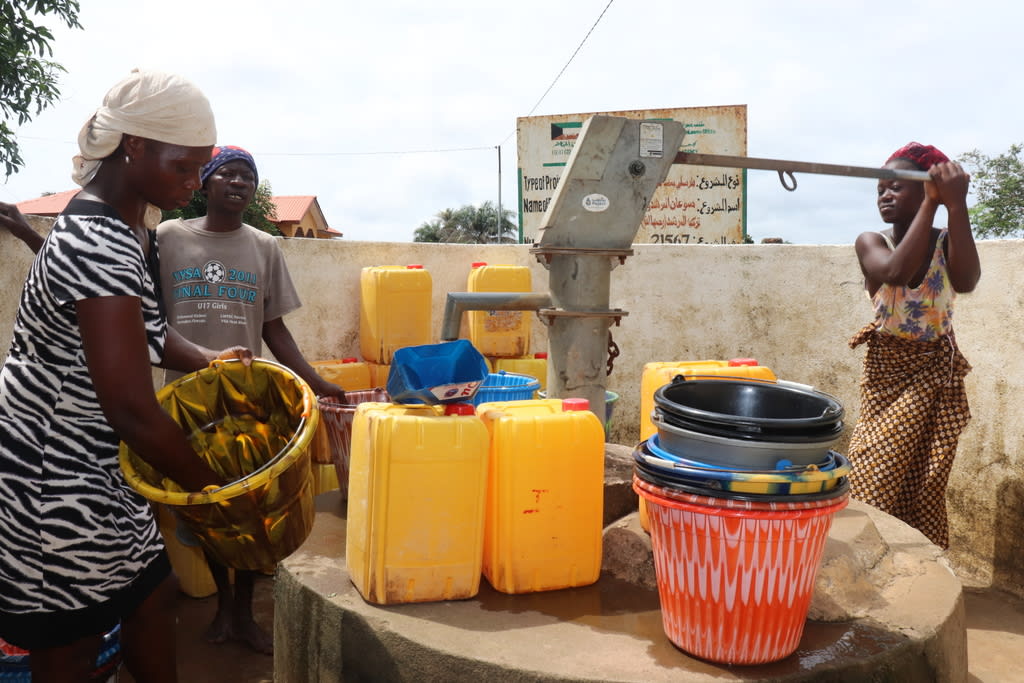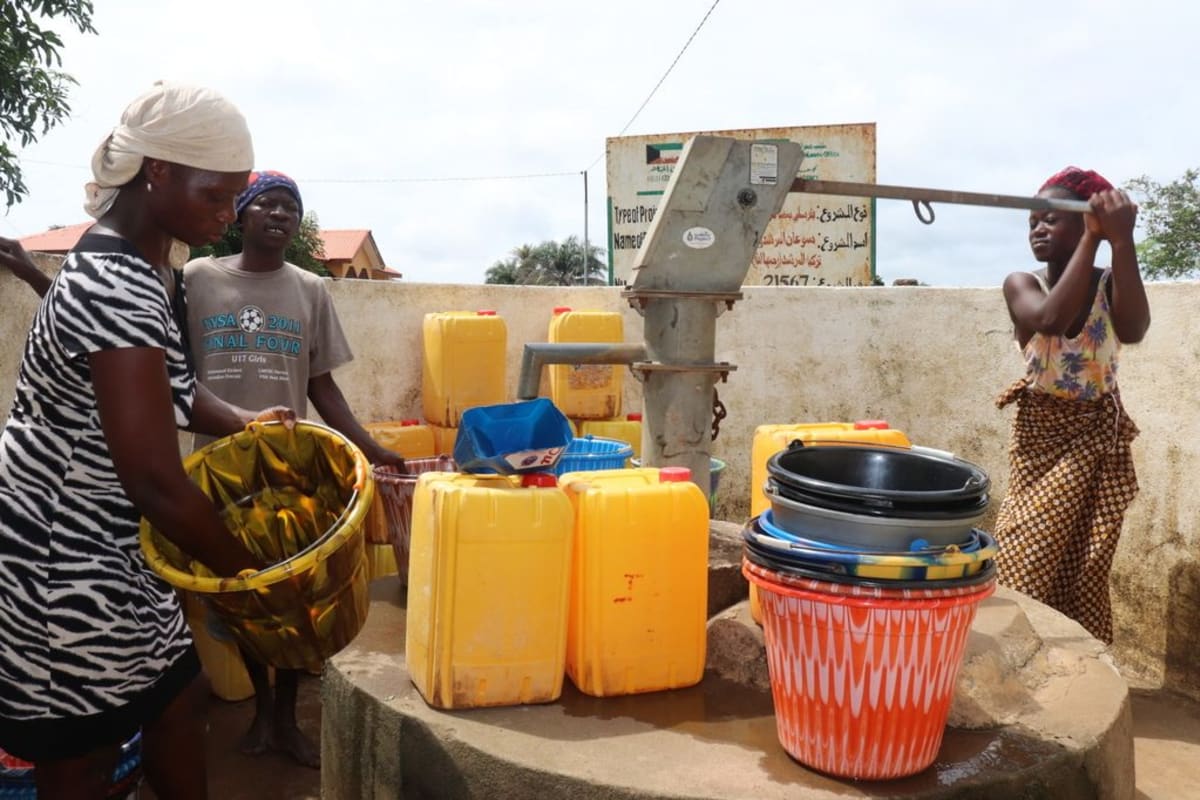This well is located at the Missionary Church of Africa (MCA) Jr. Secondary School. Initially, this was a school and community well. However, with the school closing, it serves the entire community.
It was a great resource for the people living here - until it stopped working.
Now the nearest water source the purchase of packaged water at the market, which most people cannot afford. Because buying package water for domestic use takes a millionaire.
So the majority of the people, especially kids and women, now have just one option, that is to trek far away to the swamp. This source is not only heavily contaminated, it can be dangerous to reach for this group of people.
Lungi itself is an urban town now but most of the communities in it have a very rural setting and Royema is no exception. Royeama as a whole is very peaceful because of its location in almost the outskirt of the main town with very little vegetation.
The buildings are mostly mud blocks with cement plastering scattered all over the place with a definite plan. Yet there are few urban concrete structures that were built by people migrating to this town. The buildings are constructed out of mud blocks.
The local Sheik explained that the well has gone dry on three occasions since it was constructed, but that the diggers never came back.
The number one issue here is the lack of proper hygiene and sanitation in the homes of this community. Most homes have latrines, but they are in deplorable conditions. The people resort to drinking water from any source, no matter its hygiene status.
"As a farmer, my profession dictates that I spend most of my time in the sun. And I have long noticed that if don’t drink water frequently, I will suffer from headaches," Pa Sorrie said to us.
"So I often go all out to have clean water to drink because if I don’t have enough clean drinking water, my very life will be at risk.”
Because people drink water from any source, there is a high likelihood that they will contract waterborne diseases which can be very deadly. And as a result, they must pay for the expensive medical bill or suffer the consequences of not getting proper medical treatment.
What we can do:
Training
There will be hygiene and sanitation training sessions offered for three days in a row.
After our visit, the hygiene and sanitation trainer decided it would be best to teach gather students, teachers, and community members together at the school. They will teach about good and bad hygiene, penning in animals, and building good tools like handwashing stations and dish racks. Most importantly, the trainer will emphasize the importance of having and using even basic pit latrines.
Well Rehabilitation
We see that there's been a drop in this area's water table and the well is going dry. We feel it is important to convert this hand-dug well to a borehole at the bottom, thus giving this community a year-round source of safe drinking water.
We will be hand-drilling a borehole down inside this hand-dug well. The community will host our drill team for days at a time, and may also provide labor. Women will volunteer to cook rice for the team and the other community volunteers.
Once this plan is implemented, this community will have access to safe drinking water in both quality and quantity, even through the dry months. We're even hopeful that with the restoration of clean water, Royema MCA School will be able to start classes once again.
This project is a part of our shared program with Mariatu’s Hope. Our team is pleased to provide the reports for this project (edited for clarity) thanks to the hard work of our friends in Sierra Leone.

 Protected Dug Well
Protected Dug Well
























